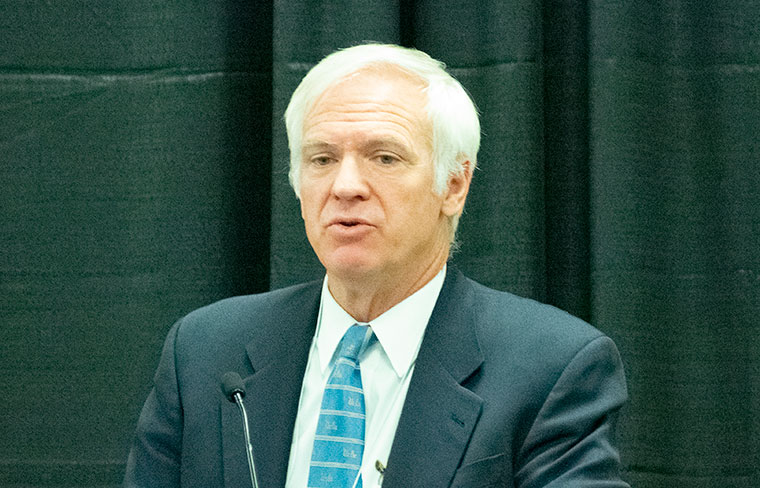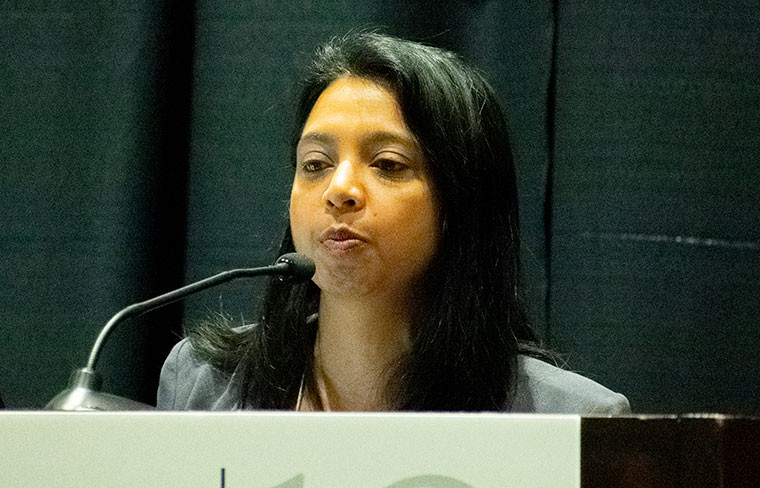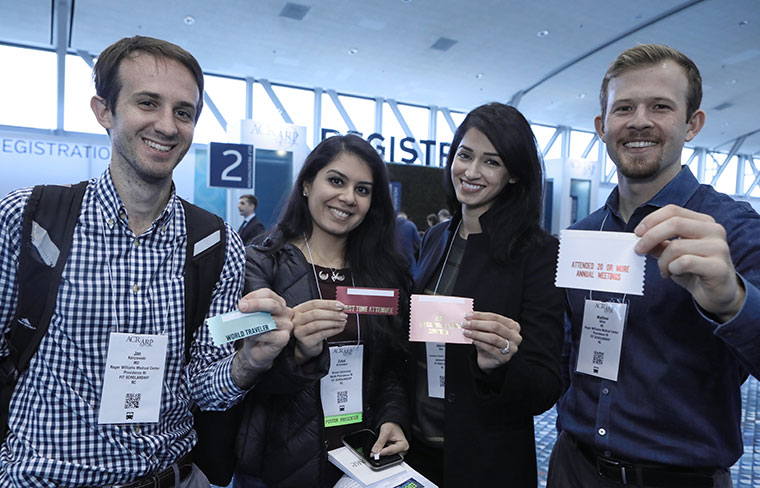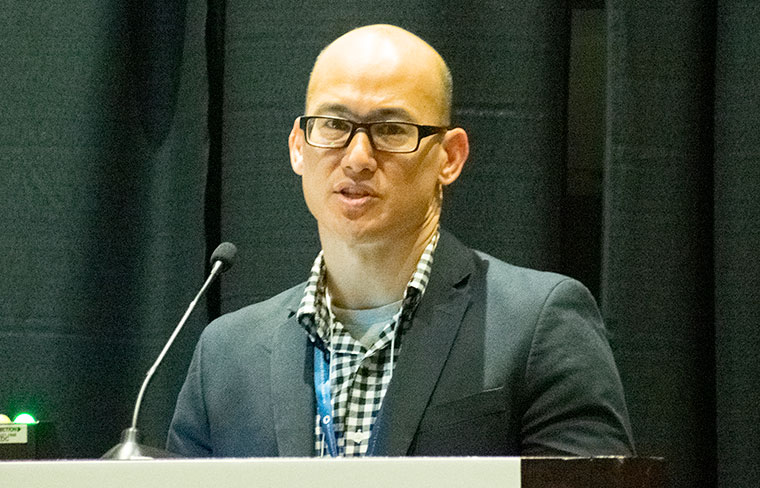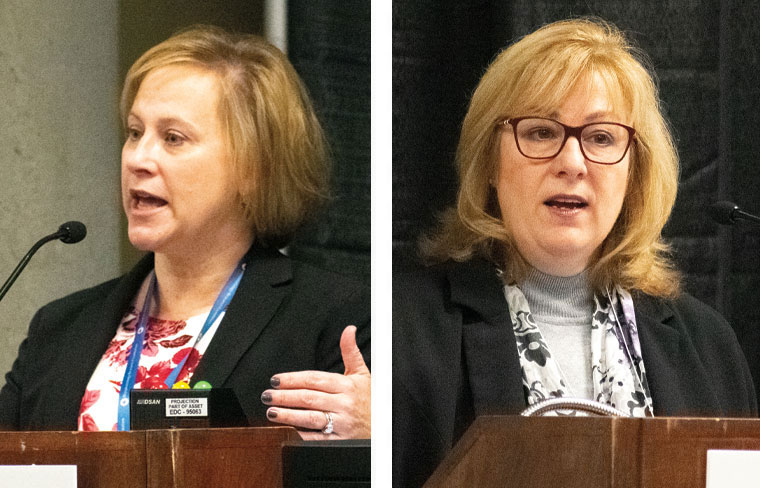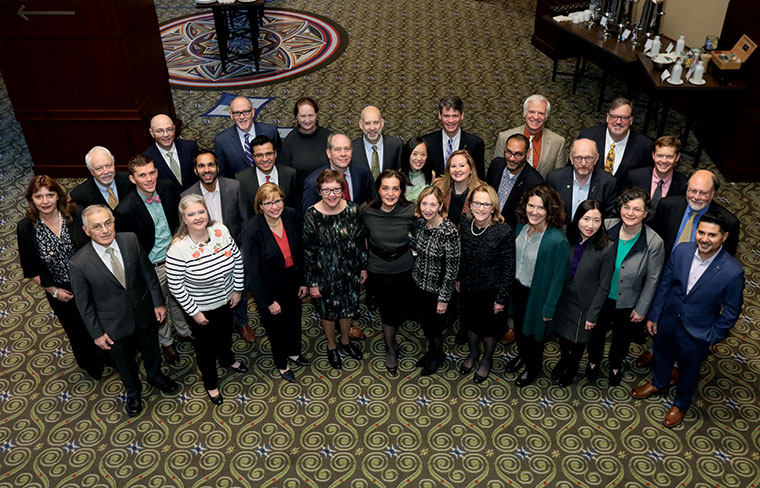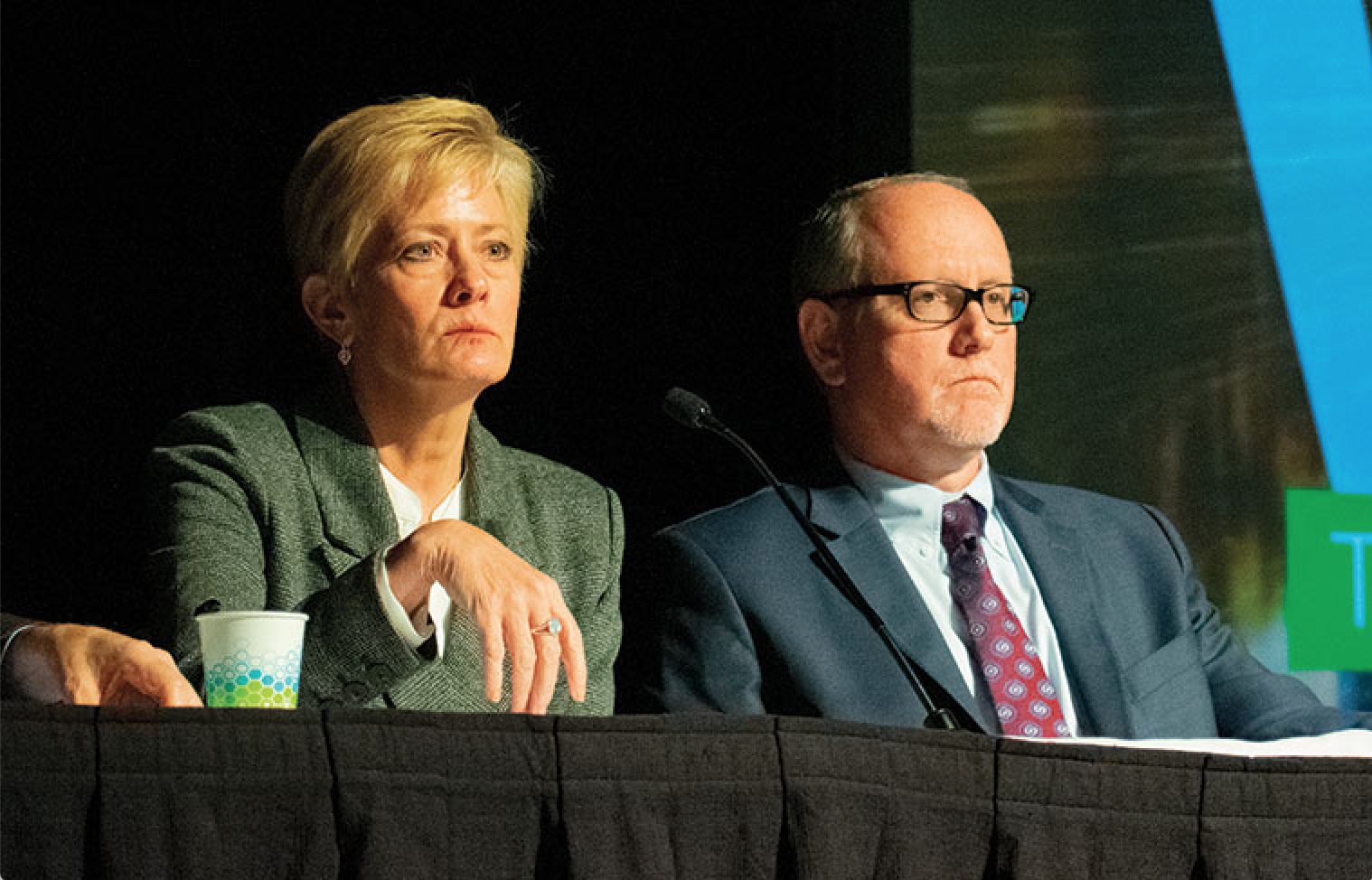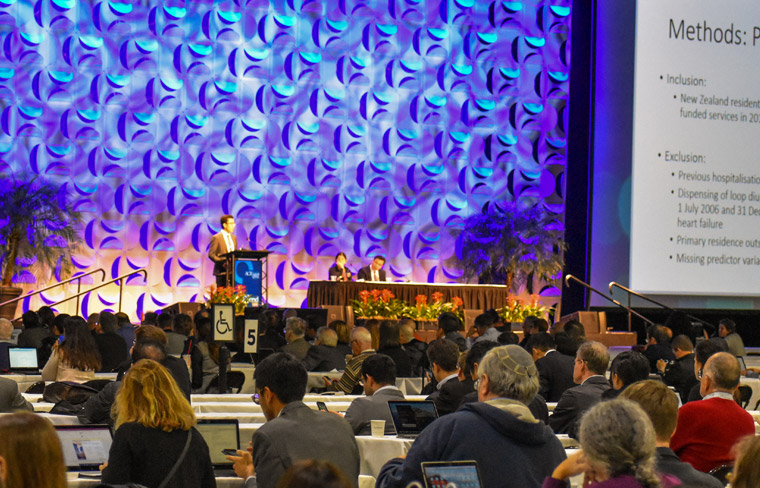
-
ACR/ARP 2019 attendees get “sneak preview” of updated gout clinical practice guideline
The updated guideline provides clinicians with evidence-based guidance on important topics such as the optimal usage of urate-lowering therapy (ULT), treatment of gout flares, managing lifestyle factors, and other medication recommendations to help them be successful in optimally managing gout in their patients.
-
Updated OA management guideline emphasizes multimodal approach
“We need to think about for each individual what are the puzzle pieces that should go together to help manage their osteoarthritis,” said Tuhina Neogi, MD, PhD, FRCPC. “There’s no one size fits all for patients.”
-
In case you missed it: 2019 ACR/ARP Annual Meeting highlights
Here’s just a sample of the great education that was available during the meeting that took place in Atlanta. Miss a session at this year’s Annual Meeting? 2019 Annual Meeting scientific registrants receive a complimentary 12-month subscription to ACR Beyond On-Demand.
-
Photo gallery: Thank you for making the 2019 Annual Meeting a success!
The ACR thanks you for joining your colleagues from around the world and for helping make the meeting a great experience! See you next year in Washington, DC!
-
Investigator outlines strategies for diagnosing, managing premenopausal osteoporosis
Premenopausal osteoporosis presents a particularly complex clinical challenge because it’s not particularly common and there’s no clear indication for treatment in premenopausal women.
-
Non-drug interventions updated in new ACR/AF OA guideline
The updated guideline recommendations will be available online in December and are expected to be published in print in early 2020.
-
Prioritizing, monitoring key to minimizing risks of polypharmacy
Polypharmacy scenarios are common in elderly patients. Don’t be afraid to deprescribe, but make sure to monitor afterwards, the speakers at an ACR/ARP Annual Meeting session emphasized.
-
ACR Board of Directors meet at the Annual Meeting
On Saturday, Nov. 9, the ACR Board of Directors met to discuss current and future initiatives that impact the ACR’s diverse membership and advance rheumatology.
-
Great Debate examines whether anabolics should be first-line therapy in GIOP
Many guidelines, including the 2017 ACR Guideline for the Prevention and Treatment of Glucocorticoid-Induced Osteoporosis (GIOP), do not recommend anabolic therapy as initial treatment for osteoporosis and GIOP.
-
Top rheumatology research showcased at Plenary III session
Showcasing cutting-edge rheumatology research from around the world, six of the top abstracts submitted for this year’s Annual Meeting were presented during Tuesday’s Plenary III session.


